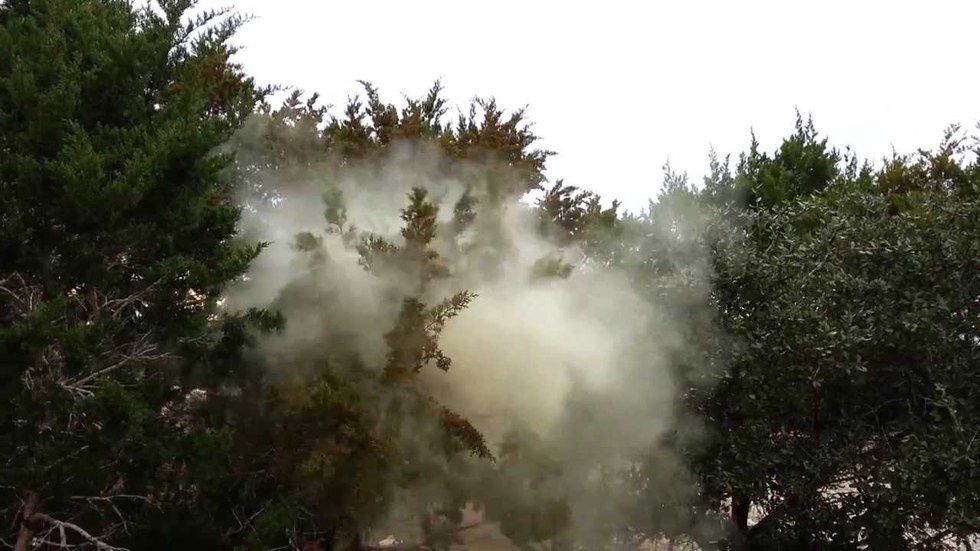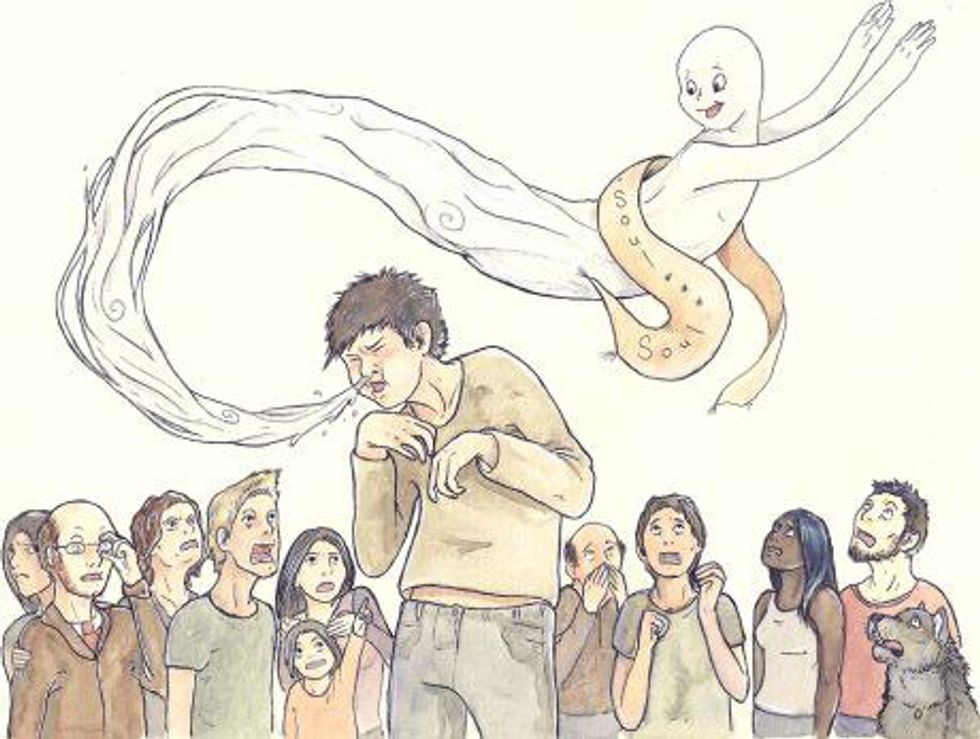Like any poor Texan in the fall, I am subject to one horrible thing: seasonal allergies. I wait in fear for the cedar to "pop," which means, for any non-Native Texan, for the cedar pollen to be released from the trees and wreak havoc among the population. When I moved to Connecticut for college, I was ecstatic to be free of the pollen's wrath and escape the itchy throats, runny noses, and red eyes that go along with Texan allergies. Little did I know, nature is out to kill you no matter where you live. My first three weeks at Wesleyan have been characterized by non-stop sneezing and rubbing at my burning eyes until it looks like I haven't slept for weeks. Which I haven't. My allergies are keeping me awake.
Cedar Pollen "popping" in Texas
I have had something to ponder, however, between violent sneezes. The distinct a-choo! is a calling card for what I think is the weirdest thing humans do. After a random stranger has expelled germs from their nasal cavity at a speed of 100 miles an hour, we feel compelled to speak to them, to impart religion on them, to ask God to "bless them." Even those who avoid the proclamation of "bless you" still use "gesundheit" which translates to "good health" in German. There is something so mystical and dangerous about a sneeze to us as human beings that we have been taught to immediately wish the person who sneezed spiritual or physical well-wishes before they can even open their eyes.
We've all heard the etymology of the term "bless you." Back in the "olden days," when someone sneezed, people were afraid that they were either going to sneeze out their soul OR that they were going to welcome demons into their bodies, so the wish of "bless you" was required as soon as possible to avoid demonic possession or spiritual damnation. This notion now seems silly to us. We know why we sneeze, and most don't believe that their soul or body is at risk when they do so. Yet years of conditioning have primed us for the instinctual response.
Who taught us to say "bless you?" Was it our parents when they thought it was time for us to learn manners? Did they ever think to themselves, What am I teaching my child to say when a stranger has just sprayed 100,000 germs into the air? And most importantly, what has made us so entitled that after we sneeze, we expect to hear a bless you? I am compelled to think of a car ride home a couple of years ago when the whole family was in the car, each doing their own thing. My sister let out a small sneeze, disturbing the quiet for a millisecond. No one noticed. No one said a word. A minute later, she cleared her throat. "Is no one going to say 'bless you?'" she asked, annoyed. We immediately responded to her request, wishing her good health and belatedly protecting her from demons that were trying to enter her body after her sneeze. Now that response bothers me. Why did I have to impart upon my sister wishes for good health when she made the atmosphere in the car decidedly more unhealthy for the rest of us?
We look at dogs and laugh as they run to the door at the doorbell, trained to think that there was a visitor there for them. We laugh as their ears perk up when they hear a paper bag rustling, thinking that there may be a treat. Yet it's no comedy when a room full of strangers belt in unison "GOD BLESS YOU" after the tiniest sneeze. Pavlov may have been successful with his experiments on dogs and proving that classical conditioning is a reality, but one doesn't need to look any further than themselves when questioning the ideas of Pavlov. A single sneeze is enough to make us question: are humans really that much more evolved than other animals?





















